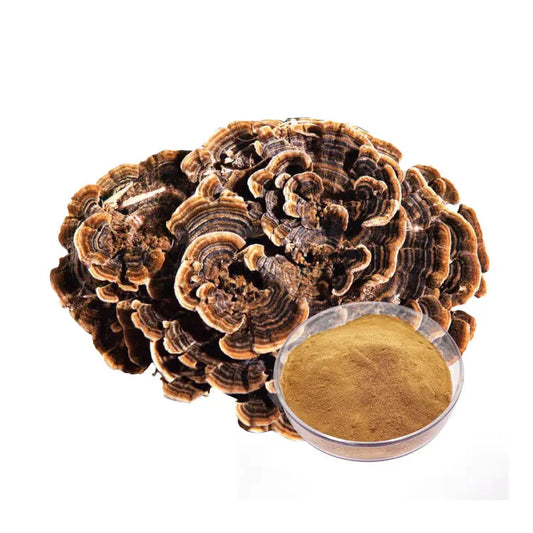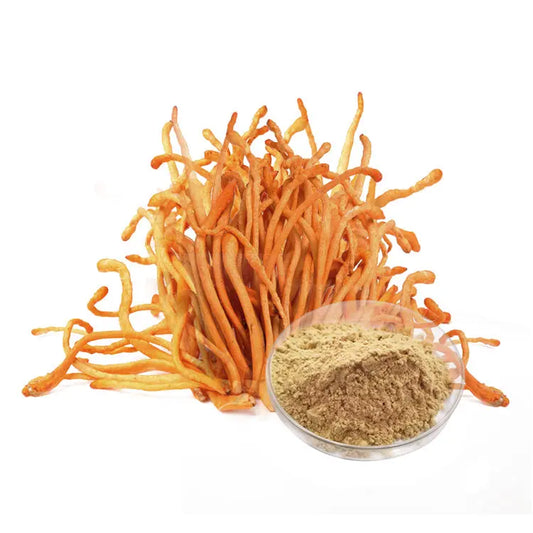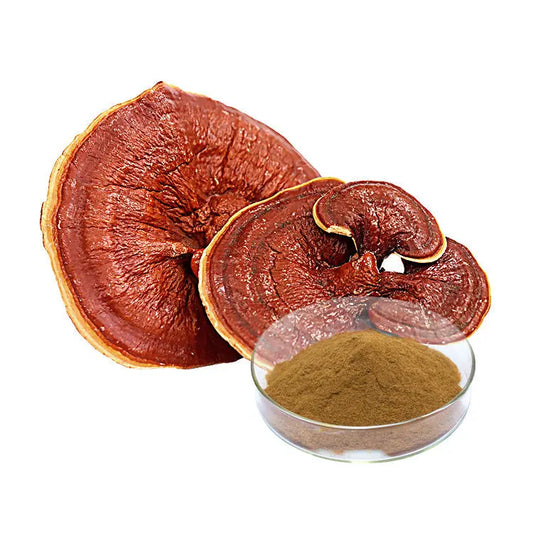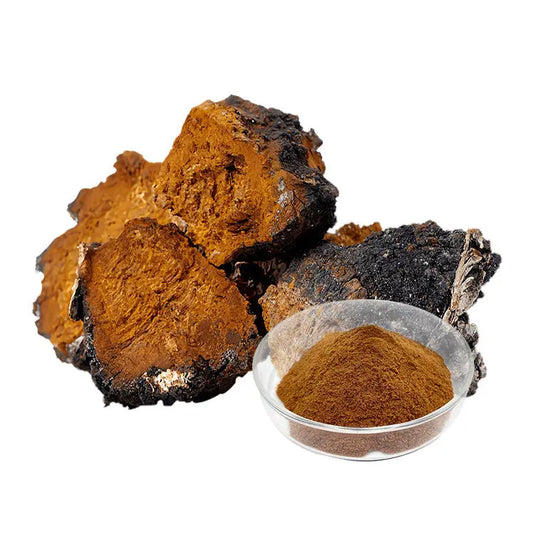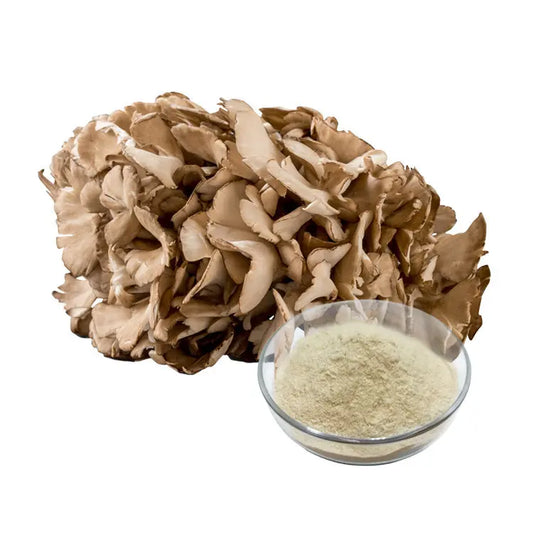Traditional Chinese medicine has a rich history of utilizing various herbs and natural remedies, and one such herb that has garnered attention is the Turkey Tail Mushroom. These mushrooms, known for their colorful fan-shaped appearance reminiscent of a turkey's tail, have long been used as herbal supplements and treatments for respiratory ailments in traditional Chinese medicine. Recent modern research has revealed fascinating potential health benefits associated with these mushrooms, including their anti-tumor properties and positive effects on the immune system.
The Wonders of Turkey Tail Mushroom
Turkey Tail mushrooms, with their captivating appearance, grow on trees and fallen logs in forested regions around the world. While they have traditionally been employed as herbal remedies for respiratory issues in Chinese medicine, contemporary studies suggest that their applications might extend far beyond, particularly in the realm of cancer treatment.
Immunotherapy and Turkey Tail Mushroom
Immunotherapy has become a pivotal approach in cancer treatment, aiming to activate a patient's immune system to combat cancer cells. Within this context, Turkey Tail mushrooms have piqued the interest of researchers, as compounds found in these mushrooms are believed to possess non-specific immune-modulating properties, enhancing immune function. This mechanism makes Turkey Tail mushrooms a potential natural herbal aid in bolstering immune responses.
A clinical trial conducted in 2012 investigated breast cancer patients taking Turkey Tail mushroom powder capsules, and the results showed that these patients exhibited a faster recovery of immune function after radiation therapy compared to those not taking the capsules. Another study focused on breast cancer patients suggested that Turkey Tail mushrooms might enhance the effectiveness of chemotherapy. These findings imply that Turkey Tail mushrooms could have a positive impact on cancer patients' treatment.

Exploring Anti-Tumor Properties
In addition to their potential effects on the immune system, modern research has also delved into the anti-tumor properties of Turkey Tail mushrooms. For several decades, a preparation made from Turkey Tail mushrooms, known as "krestin," has been used as a supportive therapy for cancer treatment in Japan, encompassing breast cancer, lung cancer, gastric cancer, pancreatic cancer, and liver cancer. However, despite decades of research, the exact mechanism of action of krestin remains unclear. This suggests that compounds within Turkey Tail mushrooms may indeed possess anti-tumor properties, though the specific mechanisms are still under investigation.
Safety and Potential Side Effects of Turkey Tail Mushroom
While Turkey Tail mushrooms have shown some potential health benefits in research, they may also induce certain side effects, including allergic reactions, gastrointestinal discomfort, and potential interactions with other medications. Therefore, when considering the inclusion of Turkey Tail mushrooms as part of a treatment regimen, it is crucial to have detailed discussions with healthcare professionals to ensure its safety and appropriateness within the current treatment plan.

In Conclusion,Turkey Tail mushrooms, with their rich history in traditional Chinese medicine, have sparked significant interest in modern science. Research findings suggest that compounds within these mushrooms may positively affect the immune system, serving as potential immune modulators that enhance immune responses. Furthermore, they may possess anti-tumor properties, although ongoing research aims to shed more light on their mechanisms and clinical applications.
In any cancer treatment, collaboration with a specialized healthcare team and adherence to medical advice and treatment plans are of paramount importance. If patients are interested in exploring Turkey Tail mushrooms or other herbal supplements as complementary treatments, it is essential to engage in discussions with healthcare professionals to ensure safety and suitability. Turkey Tail mushrooms, as a natural herbal remedy, may offer new hope for cancer patients, and careful consideration of their potential risks and benefits is imperative.


